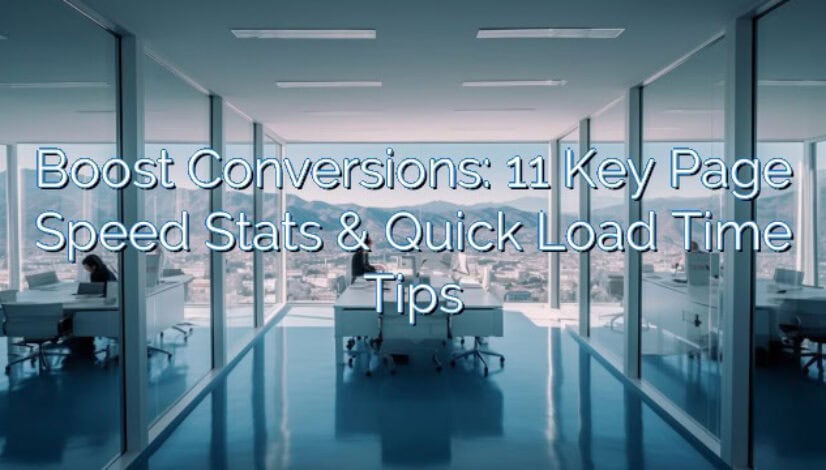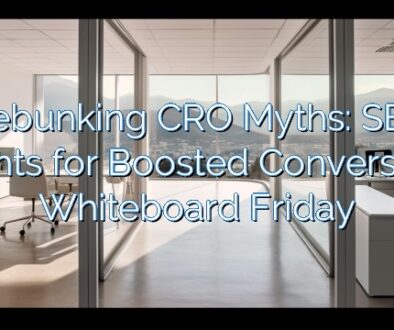Boost Conversions: 11 Key Page Speed Stats & Quick Load Time Tips
Optimize Your Page Load Speed to Drive Conversion and Revenue
As a small to medium business owner or nonprofit leader, maximizing your website’s potential is pivotal to your online success. In this comprehensive guide, we’ll show you why page load speed should top your priority list and how to achieve lightning-quick load times to improve user experience, conversions, and ultimately, your bottom line.
The Importance of Swift Page Load Times
In the digital era, mere seconds are all that stand between a potential customer and a lost opportunity. In the bustling online marketplace, your website’s performance can make or break the user experience. Page load time, the span between a user’s click and the full display of your site, must be minimal. Why? Because the faster your site loads, the quicker your audience can engage with your content, products, or services.
But it’s not just about keeping pace; it’s about staying ahead. As our digital infrastructure evolves and user expectations heighten, ensuring an instant, seamless web journey for your customers is not just recommended; it’s essential.
What Influences Your Website’s Speed?
Several internal factors, such as the complexity of your HTML/CSS, the size of media files, and the efficiency of your website’s code, play a crucial role in load speed. Moreover, external aspects like hosting server responsiveness and the user’s own internet connection also significantly impact how swiftly your pages load.
Consider external influences a part of the visitor’s unique circumstances but focus intensely on the variables within your control. Optimizing each of these elements can lead to dramatic improvements in speed and user satisfaction.
Achieving Competitive Load Times
What qualifies as a brisk load time? It’s not about matching the sluggish industry average; it’s about striving for the exceptional. Studies spotlight a golden window: 0-4 seconds to secure optimal engagement and conversions. Anything beyond this span sees diminishing returns and heightened bounce rates. The clear message? Speed is the currency of the web, and you need to be rich in it.
Evidence That Page Speed Impacts Conversions
Statistical analysis draws a direct line between site speed and conversion rates. For instance, B2B sites that load within just a second boast conversion rates triple those of sites taking five seconds. And if your site serves the B2C eCommerce market, buckle up—the standards are even loftier. The clear correlation between quick load times and a solid bottom line is not to be ignored.
Mobile Matters: The Vitality of Responsive Optimization
Mobile site speed cannot be an afterthought, as over half of global web traffic now originates from mobile devices. Yet, mobile page load speeds lag behind desktop counterparts drastically. Neglecting mobile optimization is equivalent to turning a blind eye to over half of your potential audience. It’s time to embrace responsive design and swift mobile performance as cornerstones of your digital strategy.
Step-By-Step Solutions for Speed Optimization
Gearing up for greater page speed isn’t rocket science, but it does demand a strategic approach. Start by evaluating your current performance using tools like Google PageSpeed Insights. Implementing tactics like caching, compressing images, and minifying code can provide immediate gains. And remember, specificity is key—focus on high-traffic and high-conversion pages to reap substantial rewards.
Frequently Asked Questions
How long does it typically take to see improvements in page load speed?
Improvements can often be seen almost immediately after implementing basic changes like image compression or enabling caching. However, more substantial improvements, especially on large, complex sites, can take longer to perfect.
Can page speed optimization affect SEO rankings?
Yes, page speed is a ranking factor for search engines like Google, which prioritize user experience. Faster page speeds can lead to improved SEO rankings.
Is it possible to have a visually rich website that also loads quickly?
Absolutely. With modern web technologies and proper optimization techniques, you can have a website that is both visually impressive and fast-loading.
How does hosting affect website load time?
Your hosting provider’s server performance can significantly impact load times. Choosing a reputable host with robust infrastructure is key to maintaining swift page speed.
Should I prioritize desktop or mobile optimization?
Given the rise in mobile traffic, both should be a priority; however, with Google’s mobile-first indexing, it’s vital to ensure your mobile site is fully optimized.



